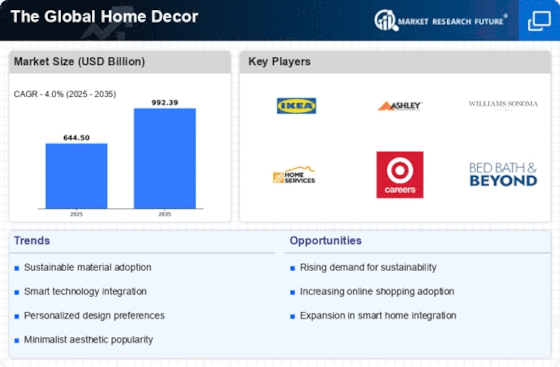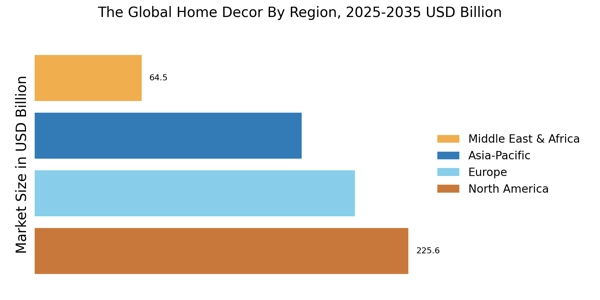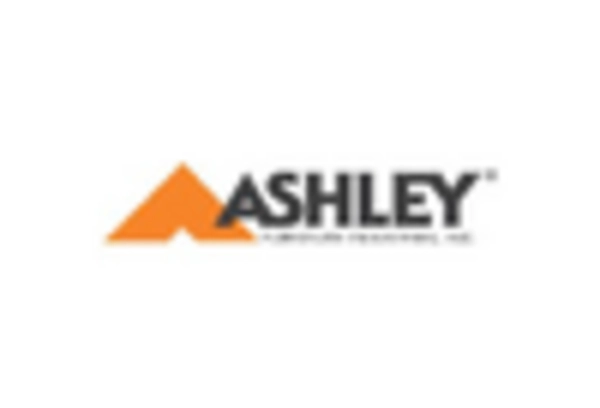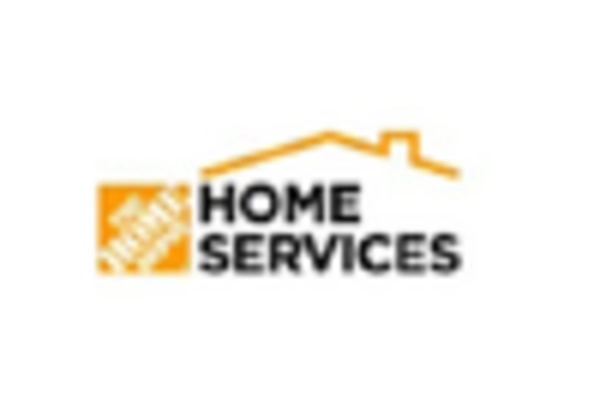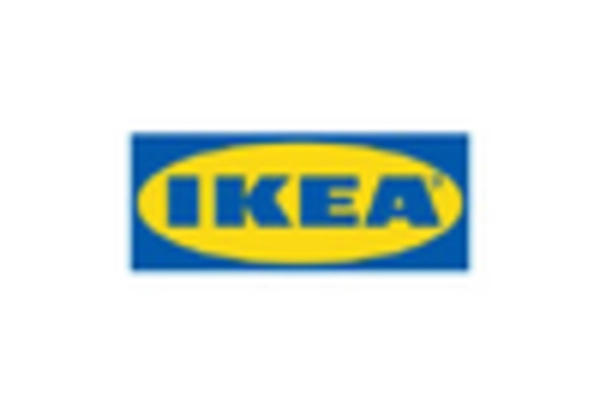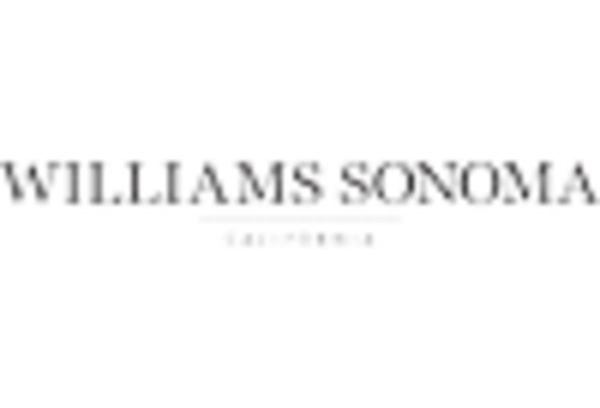Sustainability Trends
The growing emphasis on sustainability and eco-friendly products is a crucial driver for The Global Home Decor Industry. Consumers are increasingly aware of the environmental impact of their purchases and are seeking decor items that align with their values. This trend is reflected in the rising demand for products made from sustainable materials, such as reclaimed wood and organic textiles. Industry expert's indicates that the eco-friendly home decor segment is expected to expand by approximately 7% over the next few years, as consumers prioritize sustainability in their buying decisions. This shift not only influences product offerings but also encourages brands to adopt more sustainable practices, thereby reshaping the landscape of the home decor industry.
Rising Disposable Income
The increase in disposable income across various demographics appears to be a pivotal driver for The Global Home Decor Industry. As consumers experience enhanced financial flexibility, they are more inclined to invest in home decor products that reflect their personal style and preferences. This trend is particularly evident in emerging markets, where a growing middle class is seeking to elevate their living spaces. According to recent data, the home decor segment is projected to witness a compound annual growth rate of approximately 4.5% over the next few years, driven by this increase in consumer spending. The willingness to allocate a portion of disposable income towards home aesthetics indicates a shift in consumer priorities, emphasizing the importance of home environments in overall well-being.
Influence of Social Media
The pervasive influence of social media platforms on consumer behavior is a notable driver for The Global Home Decor Industry. Platforms such as Instagram and Pinterest serve as visual inspiration for home decor enthusiasts, showcasing trends and innovative designs. This digital exposure encourages consumers to explore new styles and products, often leading to impulsive purchases. Data suggests that nearly 70% of consumers are influenced by social media when making home decor decisions. As influencers and brands collaborate to create engaging content, the market is likely to see a surge in demand for unique and trendy home decor items. This phenomenon underscores the importance of digital marketing strategies in reaching potential customers and shaping their purchasing decisions.
Growing Interest in DIY Projects
The increasing interest in do-it-yourself (DIY) projects is emerging as a significant driver for The Global Home Decor Industry. Consumers are increasingly motivated to personalize their living spaces through creative and hands-on approaches. This trend is fueled by the availability of online tutorials and resources that empower individuals to undertake home improvement projects. Market data indicates that the DIY home decor segment is projected to grow at a rate of 6% annually, as more consumers seek to express their individuality and creativity. This shift not only enhances consumer engagement but also encourages the purchase of materials and tools necessary for DIY endeavors, thereby contributing to overall market growth.
Urbanization and Space Optimization
The ongoing trend of urbanization significantly impacts The Global Home Decor Industry, as more individuals and families move to urban areas. This shift often results in smaller living spaces, prompting consumers to seek decor solutions that maximize functionality without compromising aesthetics. The demand for multi-functional furniture and space-saving designs is on the rise, as urban dwellers aim to create comfortable and stylish environments within limited square footage. Market analysis indicates that the segment for space-efficient home decor is expected to grow by approximately 5% annually, reflecting the changing needs of consumers in urban settings. This trend highlights the necessity for innovative design solutions that cater to the unique challenges posed by urban living.
Emerging Markets Growth: India's Rising Influence
The home decor market size in India is witnessing remarkable growth, emerging as a key contributor to the Asia-Pacific region's market expansion. With a burgeoning population of aspirational consumers and increasing disposable incomes, India's home decor sector is projected to grow at an accelerated pace through 2035. The country's unique blend of traditional craftsmanship and modern design preferences, combined with the boom in e-commerce platforms like Amazon India and Flipkart, is creating unprecedented opportunities for both domestic and international home decor brands to capture this lucrative market.


